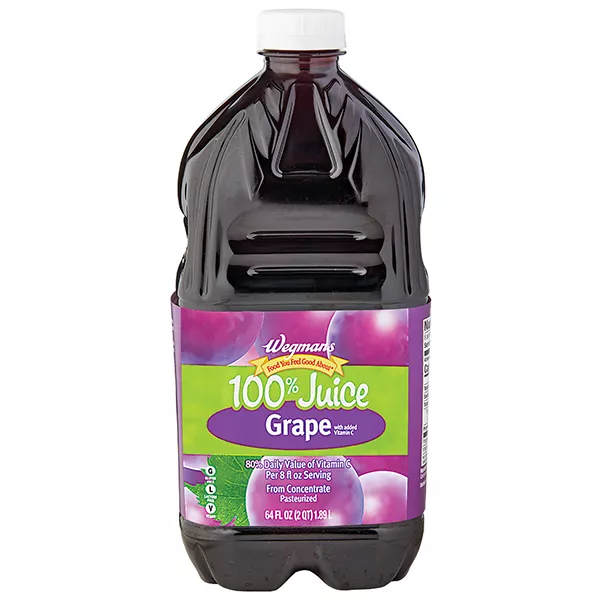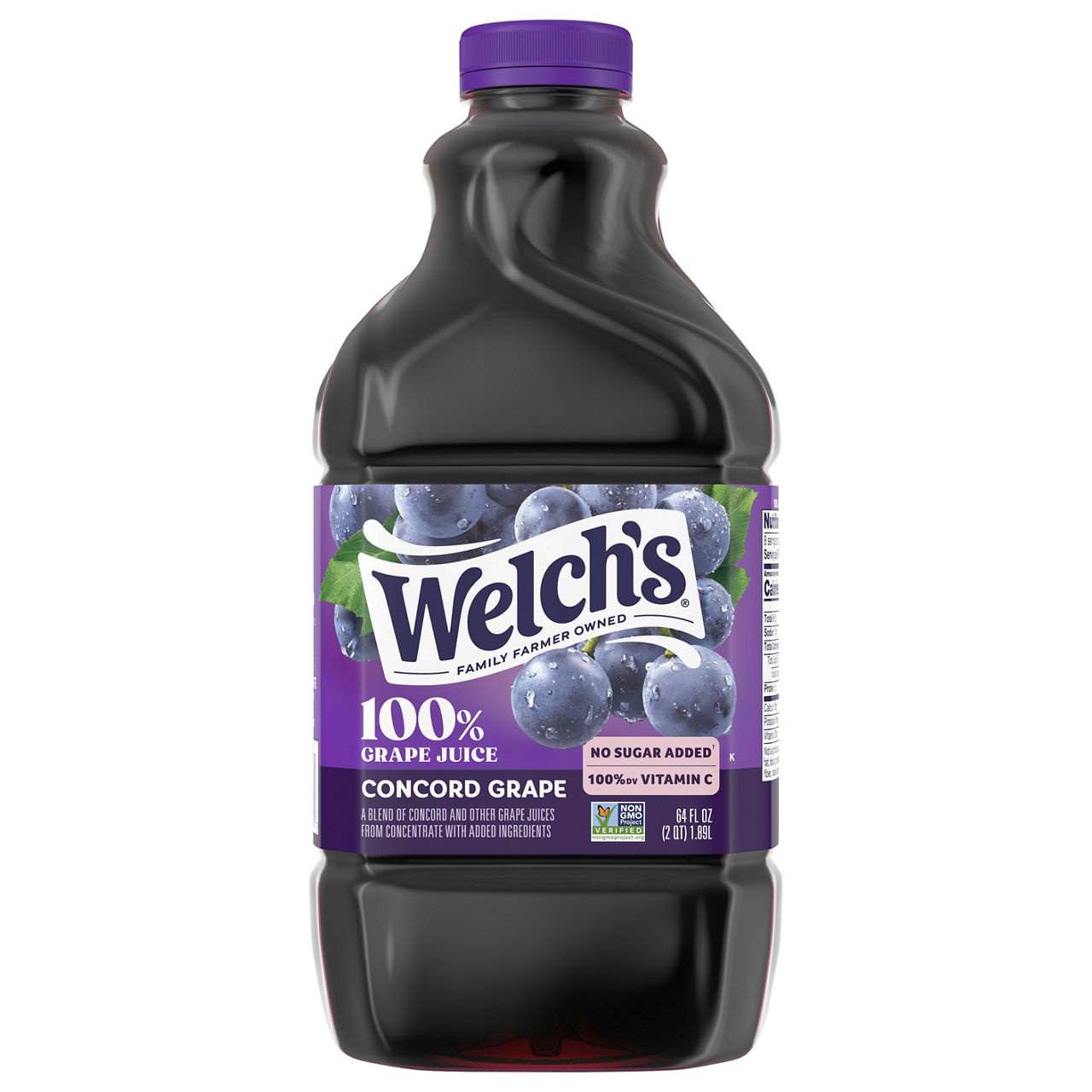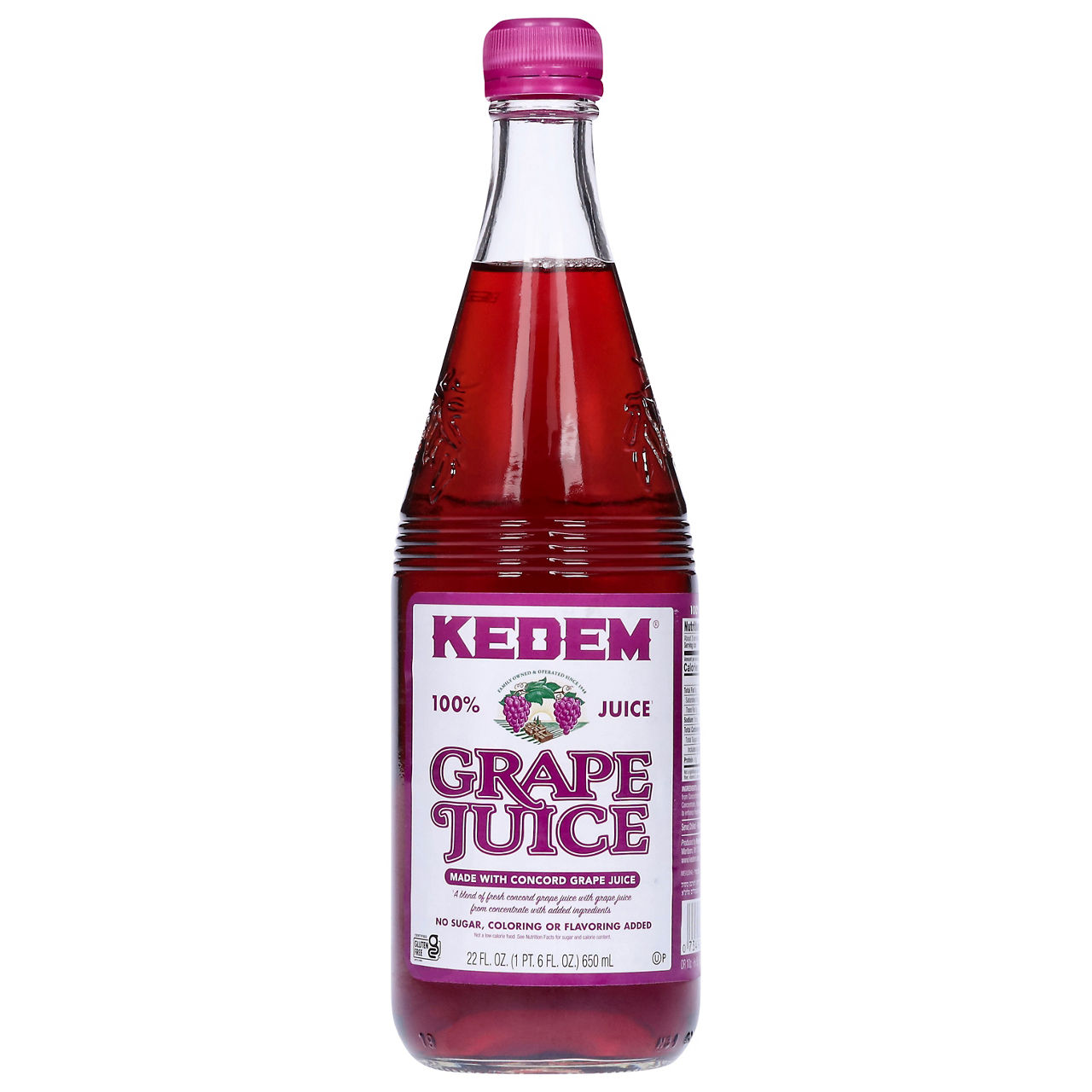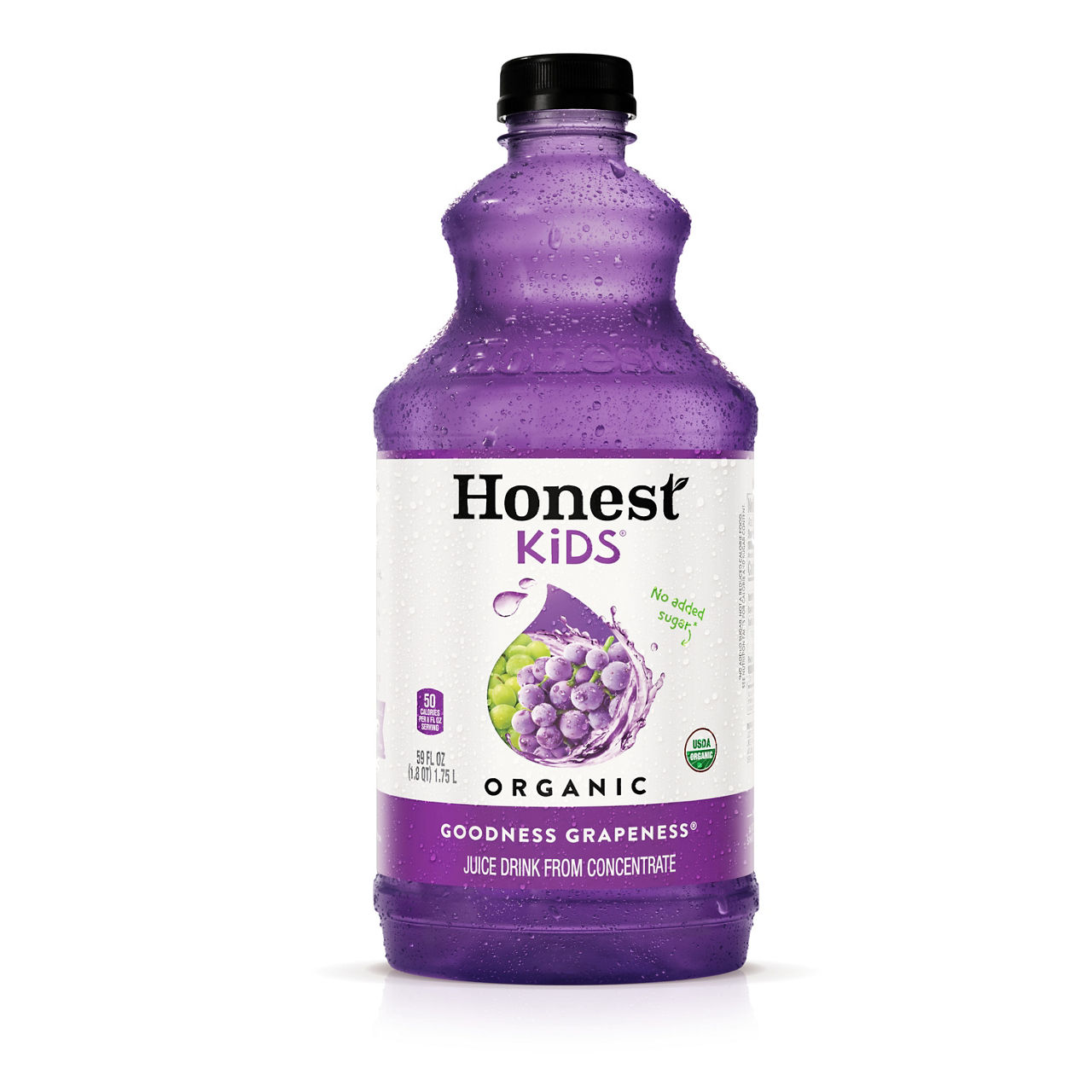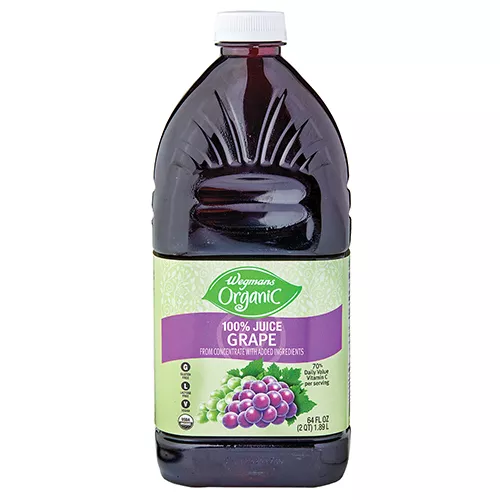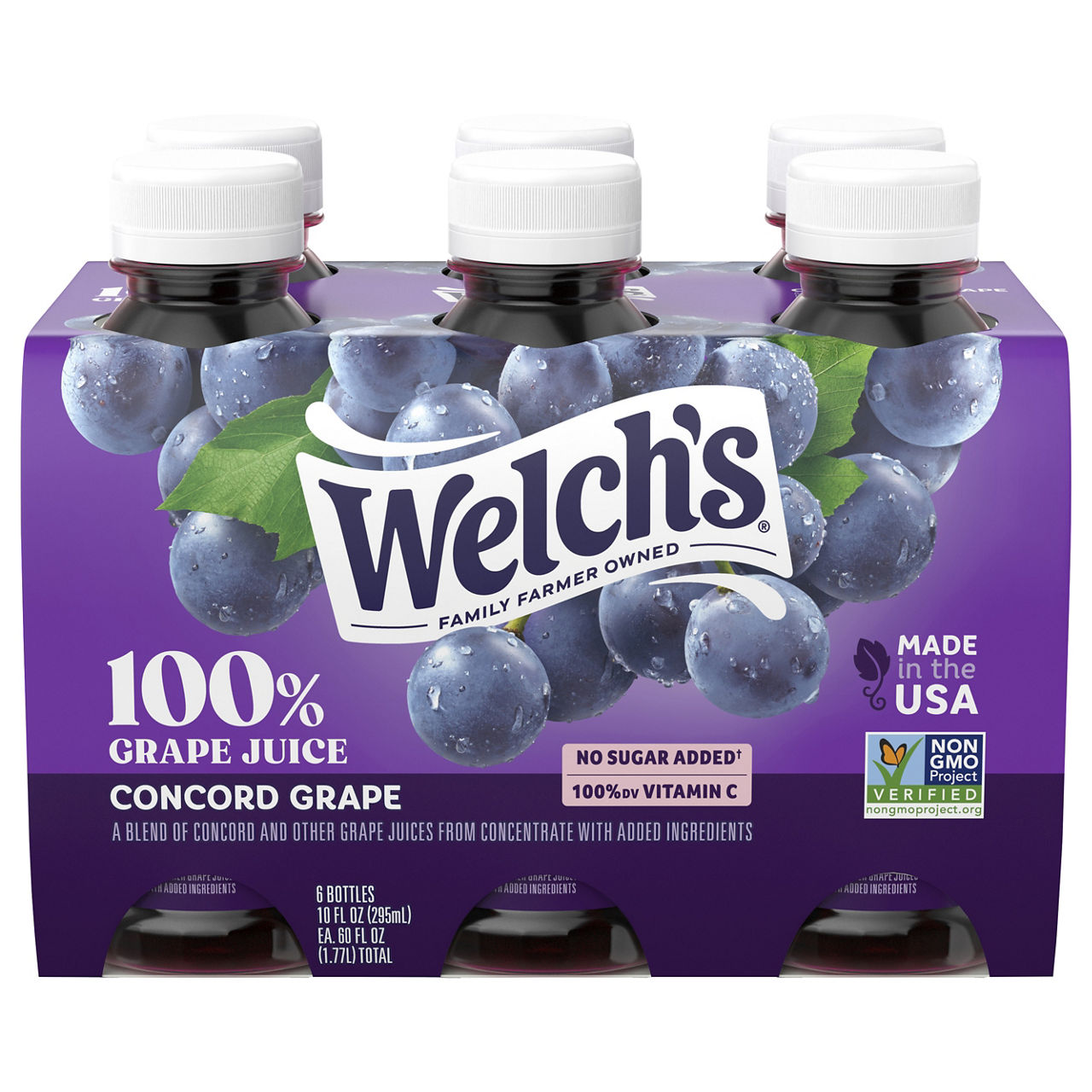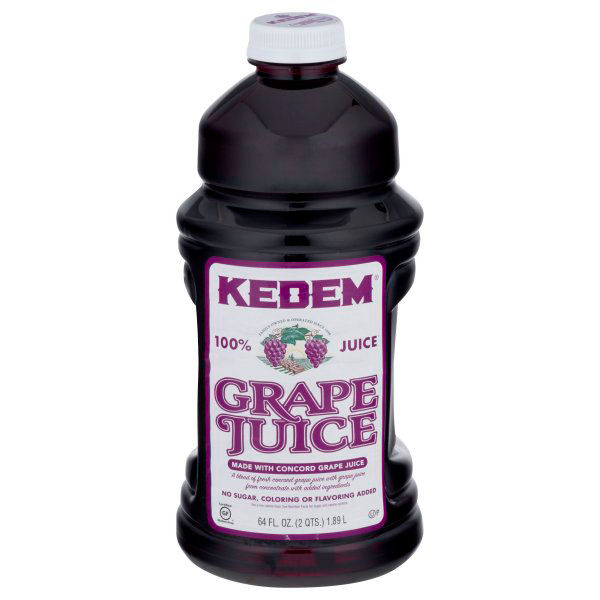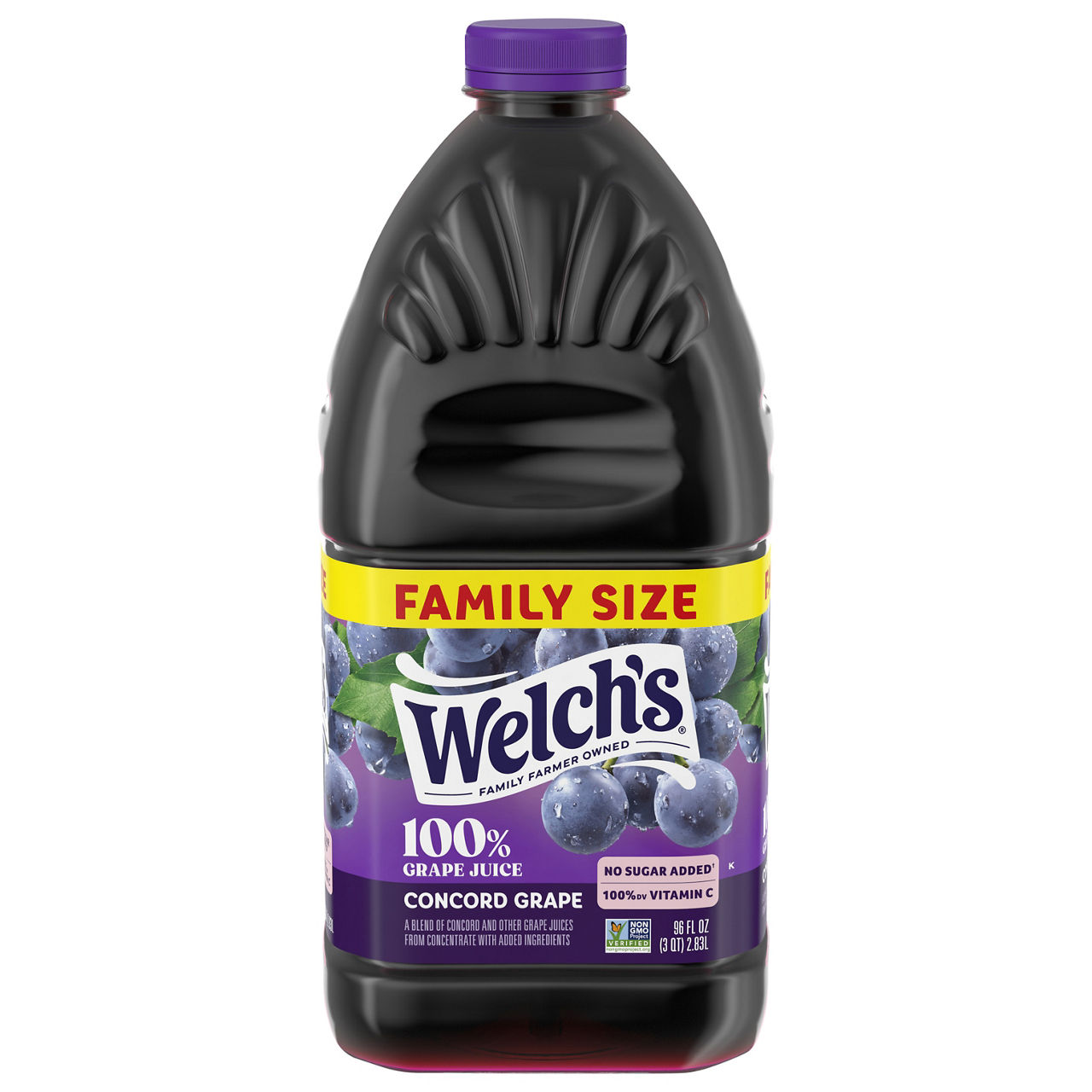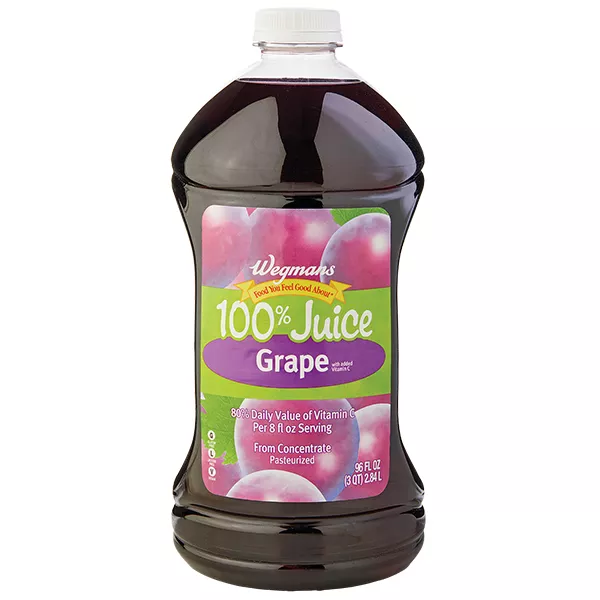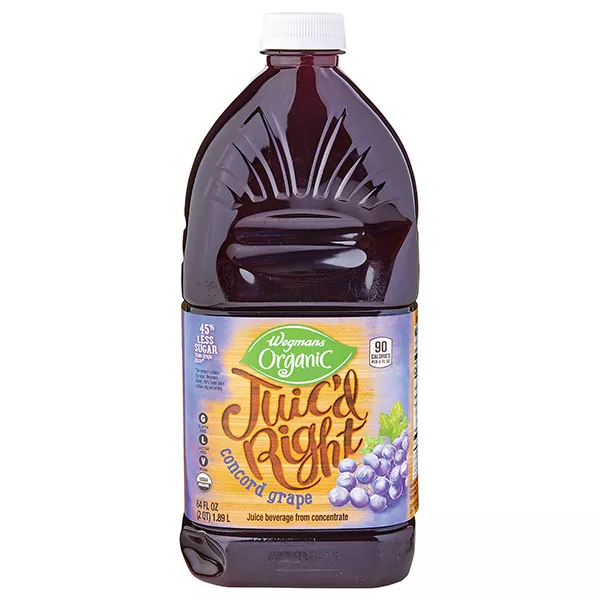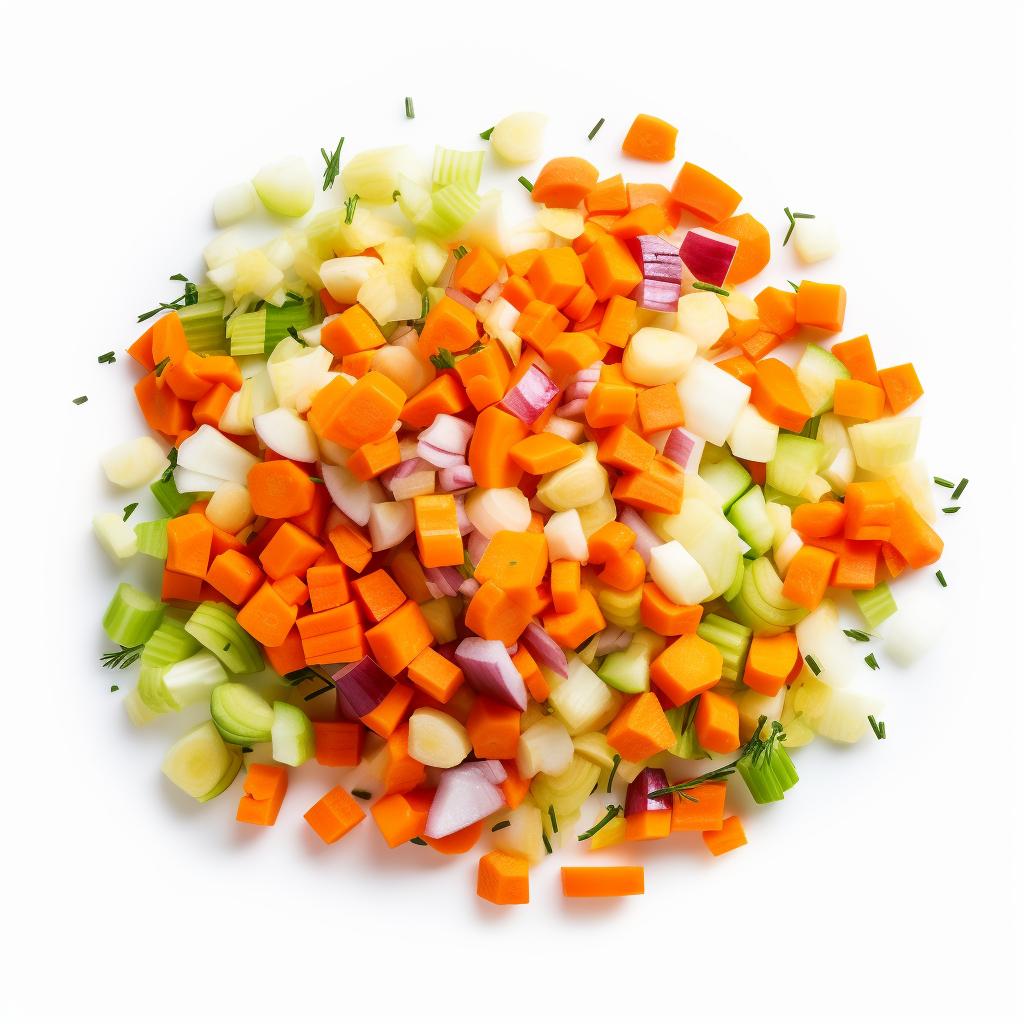BEVERAGES
Grape Juice
Grape juice is a refreshing and nutritious beverage made from the liquid extracted from crushed grapes. It comes in a range of flavors and varieties, depending on the type of grape used, such as red, white, and purple grape juice. The beverage is enjoyed worldwide and can be consumed fresh, bottled, or canned for convenience.
The popularity of grape juice extends beyond its delicious taste; it is also packed with essential vitamins, minerals, and antioxidants, contributing to improved heart health and overall wellbeing. For the home cook, grape juice can be used in a variety of recipes, like marinades, smoothies, and desserts, adding a natural sweetness and flavor depth.
97%
CARBS
1%
FAT
2%
PROTEIN
696 Grape Juice Products
100% Grape Juice From Concentrate
Welch's 100% Grape Juice
Kedem Kosher Concord Grape Juice
Honest Kids Organic Goodness Grapeness Juice Drink
Wegmans Juice Grape Juice From Concentrate
Welch's 100% Grape Juice, Concord Grape
Kedem, Juice Concord Grape
Welch's 100% Juice, Concord Grape, Family Size
Wegmans 100% Juice Grape
Juic'D Right, Concord Grape Juice Beverage From Concentrate, Concord Grape
Used In 1 Recipe
Grape Juice Is Frequently Used With
Grape Juice FAQ
Cooking with grape juice can be fun and rewarding, given the variety of flavors it can impart to dishes. However, it is important to consider several aspects to fully leverage its potential. As many home cooks often wonder, grape juice is an excellent substitute for wine in many recipes - however, the potential pitfall here lies in the sweetness which could overpower intended flavors in savory recipes. In such cases, it's suggested to either reduce the amount of grape juice or balance it out with a little vinegar or lemon juice.
Grape juice can be added to marinades to tenderize meats, thanks to its acidic nature. However, too much grape juice can make your meat mushy, a common mistake people often make.
To get the most out of grape juice, look for 100% grape juice with no added sugars. This will give you the best nutritional benefits and also provide a more authentic grape flavor.
A little known hack is that grape juice works incredibly well in smoothies, providing natural sweetness and a boost of antioxidants. Combine it with other fruits like bananas, apples, or berries for a delicious and nutritious drink in the morning.
Another hack, particularly for baking, is that substituting half the amount of water in your recipe with grape juice can enrich the flavor of your baked goods, without making them overly sweet.
Finally, remember that using different types of grape juice - white, red, or purple - can profoundly impact the taste and color of your dishes. Experiment and see which one you like best!
What's the healthiest grape juice to buy?
Can I add grape juice to my morning smoothie?
Can I use grape juice in baking?
Can grape juice be used as a substitute for wine in recipes?
Can I use grape juice to marinate meat?
Is there a difference between red, white, and purple grape juice?
Is grape juice good for health?
Can I use grape juice to make cocktail?
Can grape juice be used in desserts?
Can grape juice be used in a gravy or sauce?
Expiration & Storage Tips
When does grape juice expire?
Unopened, commercial grape juice can stay good for 12-18 months when stored properly in a cool, dry place. Although the taste might start to change, it can still be safe to drink past the expiry date until it shows signs of spoilage. Once opened, grape juice typically lasts 7-10 days in the fridge before it starts to ferment. When it comes to homemade grape juice, it’s always best to stay on the safe side and consume it within a week. If you decide to freeze your grape juice, it can last indefinitely though for best flavor, consume within 8-12 months of freezing.
How do you tell if grape juice is bad?
Grape juice that has rotted gives off a quite pungent smell, making it fairly easy to identify. If your grape juice begins to smell unusually strong, somewhat like vinegar or wine, this means it has begun to ferment and should not be consumed. In addition, if you see mold, discoloration, or notice a change in texture (it becomes slimy or unusually thick), this is a clear sign the juice has spoiled.
Tips for storing grape juice to extend shelf life
• Always store unopened grape juice in a cool, dry place like a pantry.
• Once you've opened the bottle, make sure to refrigerate it. The cold temperature of your fridge will help to slow down the fermentation process.
• To extend the shelf life of grape juice, consider freezing it. You can use an ice cube tray to make small, individual servings that you can easily add to your drinks or recipes.
• When storing grape juice in the fridge, always reseal the container tightly to limit its exposure to air, this helps prevent the growth of mold and unhealthy bacteria.
• If you produce homemade grape juice, consider bottling and pasteurizing it to extend shelf life.
EXPIRES WITHIN
7 - 11
MONTHS
Substitutes

White Grape Juice

Cranberry Grape Juice

White Grape Peach Juice

Grape Juice Concentrate

Grape Blend Juice

Apple White Grape Juice

Cranberry Raspberry Juice

Diet Cranberry Juice

Berry Juice

White Cranberry Strawberry Juice
See All
Health Info
Macros
37g
CARBS
0g
FAT
0g
PROTEIN
Allowed on these diets
LOW FAT
HIGH CALCIUM
VEGETARIAN
VEGAN
LACTOSE FREE
GLUTEN FREE

